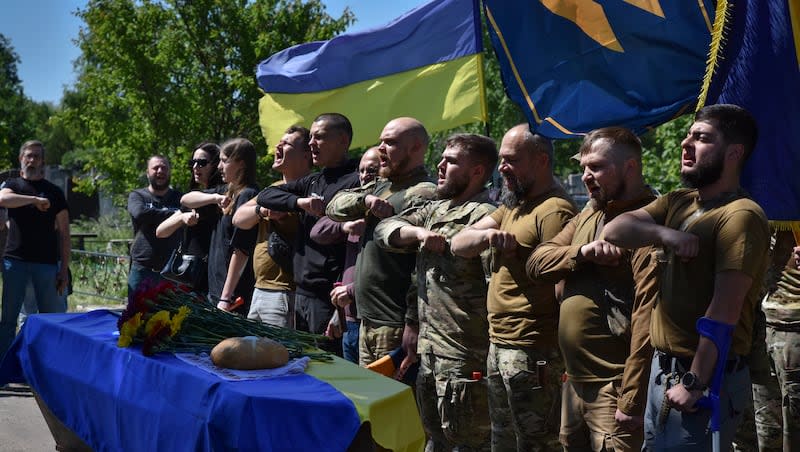Russia is using chemical weapons, says the U.S. State Department

On Wednesday, the United States said Russia has violated the international chemical weapons ban through attacks in Ukraine. The U.S. State Department issued a statement that Russia is using chloropicrin, a choking agent, against Ukrainian troops and using riot control agents “as a method of warfare” in Ukraine.
“The use of such chemicals is not an isolated incident and is probably driven by Russian forces’ desire to dislodge Ukrainian forces from fortified positions and achieve tactical gains on the battlefield,” the statement said further.
Chloropicrin is listed as a banned choking agent by the Hague-based Organization for the Prohibition of Chemical Weapons, which was created to implement and monitor compliance with the 1993 Chemical Weapons Convention, reports Reuters. German forces fired the gas against Allied troops during World War I in one of the first uses of a chemical weapon.
Chloropicrin irritates the lungs, eyes and skin, and can cause nausea, vomiting and diarrhea lasting for weeks, according to the Centers for Disease Control and Prevention, with adverse neurological and musculoskeletal effects that may persist from weeks to months. It can cause burns in the mouth, esophagus and stomach and potentially pulmonary edema, which can lead to death.
In April, Reuters also reported that in addition to the poison gas chloropicrin, Russia was using drones to drop grenades filled with CS and CN gases to clear trenches, an illegal use of the riot control substances. One Ukrainian soldier has died after choking on the tear gas, and 500 soldiers have been treated. Col. Serhii Pakhomov, acting head of Ukraine’s military atomic, biological and chemical defense forces, said Kyiv had recorded 1,400 such attacks since the February 2022 invasion, but there has been a sharp uptick recently, with over 900 uses of “riot control agents” in the last six months.
The Institute for the Study of War, a Washington-based think tank, reported in December that Russian forces fighting near the southern city of Kherson had said on social media that they were dropping K-51 aerosol grenades filled with CS gas from drones onto Ukrainian positions.
The State Department statement said it was delivering to Congress its determination that Russia’s use of chloropicrin against Ukrainian troops violated the Chemical Weapons Convention.
Moscow’s use of the gas “comes from the same playbook as its operations to poison” the late opposition leader Alexei Navalny in 2020 and Sergei Skripal and his daughter Yulia in 2018 with the Novichok nerve agent, the statement said.
The Kremlin dismissed the U.S. accusations, and Kremlin spokesperson Dmitry Peskov said: “We saw the news about this. These accusations are absolutely groundless, not supported by anything. Russia was and remains committed to its obligations in international law,” reports CNN.
Foreign ministers assembled at a Group of 7 summit said in a statement last month that “any use of chemical, biological or nuclear weapons by Russia would be met with severe consequences.”
The State Department statement of May 1 concludes, “The United States will continue to use the tools at its disposal to disrupt support for Russia’s military-industrial base and curtail Russia’s use of the international financial system to further its war against Ukraine. We continue to stand in solidarity with Russians striving for a more democratic future and with Ukrainians defending their homeland from Russia’s aggression.”

